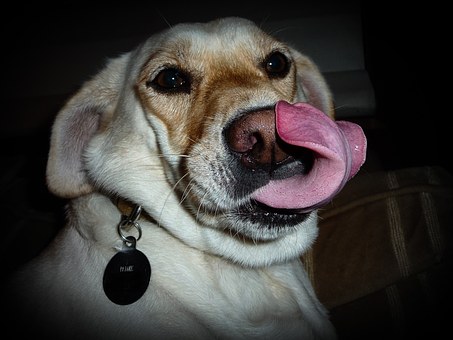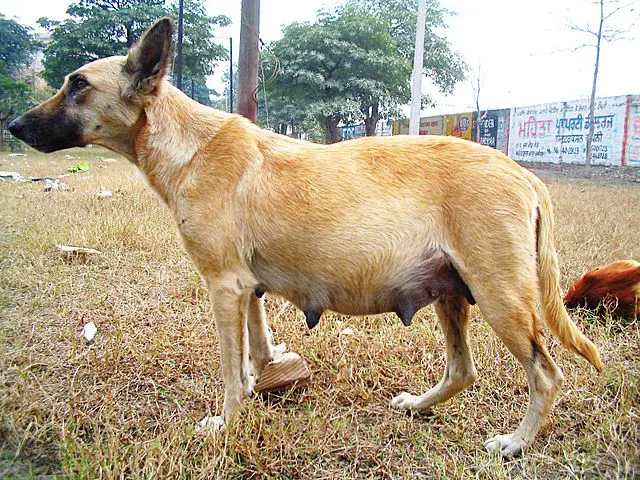What could be better than getting a kiss from a joyful dog when you go home? The majority of dog owners consider licks from their pets to be a sign of affection. To put it another way, it’s the closest your dog can get to kissing. Is this, however, correct? What can you do if your dog’s licking has gotten out of hand?
Is Licking a Dog’s Way Of Kissing?
The jury is still undecided on what a dog’s licking signifies. It’s possible that what you perceive as affection is actually your dog prompting you to puke up your meal for them.
“Researchers of wild canids — wolves, coyotes, foxes, and other wild dogs — report that puppies lick their mother’s face and muzzle when she returns from a hunt to her den — in order to get her to regurgitate for them,” says Alexandra Horowitz, director of Barnard College’s Horowitz Dog Cognition Lab and author of Inside Of A Dog: What Dogs See, Smell, and Know.
Similarly, your dog can just believe you’re tasty. Dr. Mary Burch, a certified applied animal behaviorist, reminds out that humans’ skin is somewhat salty, especially after sweating during activity. As a result, such licks might be more about obtaining salt than expressing affection. If your dog likes to lick your face, Horowitz says it’ll usually happen after you’ve had a nice dinner. Or, for that matter, any meal.
But, there is also evidence that licking is sometimes a sign of affection. Horowitz points out that, although it started as a food-seeking behavior, licking has now become a ritualized greeting for many dogs. Some wild species in the dog family will lick pack members just to welcome them home. So, those daily slobbers really might just be a sign that your dog is happy to see you. “Licking can be a sign of affection,” explains Dr. Burch. “It might also give a dog a feeling of security and comfort, just as the dog had when licked by its mother in the litter.”
When Is Licking a Problem?
The majority of licking is harmless, and the dog may even enjoy it as a form of self-expression. Burch points out that there’s no reason to be concerned that it’s a sort of oppression; in fact, it’s the polar opposite. She claims that one explanation is that licking is a gesture of surrender. “The theory is that subordinate canines will lick a more dominating group member.” Even yet, there are times when you may wish to prevent your dog from slobbering on you. The first is a matter of human comfort; some individuals just do not enjoy being licked. If you have a germaphobic buddy who cringes as your dog approaches, redirecting the behaviour is better for both the dog and the person.
However, licking might be a sign of a more serious condition. Assume your dog is excessively licking itself, you, or items, to the point that it appears to be a self-stimulatory habit. This might be an indication of anxiousness, boredom, or pain in such a scenario. Self-licking as a habit might be an indication of allergies or other health issues.
What Can Dog Owners Do About Problem Licking?
If your dog is self-licking excessively, have them checked out by a veterinarian to rule out any medical issues or pain. You can resort to behavioural remedies once you’ve ruled out medical causes. “Redirecting your dog is one idea,” Dr Burch explains. “As soon as they lick, change the activity. Choosing a behaviour that is incompatible with licking, such as solving an interactive puzzle to obtain a treat, is a nice alternative. You may also educate the dog to perform other things like play with a ball or learn tricks.” You may progressively reinforce the lesson that you don’t want your dog to lick by repeating this redirect without ever employing negative reinforcement.
Trick training, in particular, is an effective approach to change a pattern of unwanted behavior into a positive reinforcement opportunity. Begin by having the dog sit, which may cause the licking to cease on its own, and then praise the action with a treat. Then, why not use your dog’s devotion to your advantage by training them to give you a hug? Or do you like to talk on cue? Sitting up, army crawling, and leg weaving are some more exercises to try. If you and your dog like trick training, you might want to consider entering Trick Dog competitions.






